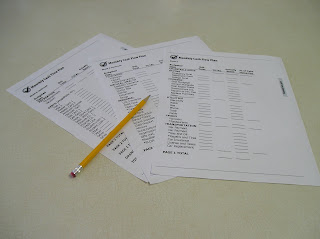We'll return to our experience at
Financial Peace University during another series of posts. To sum up that experience here, let me just say that it completely changed our lives. We no longer felt afraid and confused, and we had plans to pay off our debt in less than three years. And then our future got derailed.
In November, 2009 Emily and I went to the
National Youth Workers Convention in Cincinnati. I came back having been challenged, encouraged, excited, impassioned. This was going to be the year of real change, real excitement in the youth group. I had a beautiful family, a new baby on the way, and a clear vision that took me ten years into the future. By the time February had come, we were staring down the barrel of unemployment.
The hows and whys of our decision to move on from Michigan don't play into this posting. There were a lot factors that led to our packing up, moving out, and heading to my parents' house in North Carolina. The church gave us two wonderful gifts: health insurance to the end of the year and three months of severance pay. The plan we devised from there was straightforward: stop the Total Money Makeover until we got back on our feet. We stockpiled our tax refund in our emergency fund, paid the penalty for breaking our lease early, and hired the least expensive moving company we could find. From there, move into the house my parents had been unable to sell and look for work. I paid for my teacher's certification and started sending out resumes and applications from February to June of that year.
Stopping our Total Money Makeover may have been the most frustrating thing we have had to do since graduating from FPU. We were used to sending in huge payments to our debts every few months, cutting our food spending, and finding new and creative ways to give and bless others with our resources. To have all of this cut off in the midst of our flow was incredibly discouraging. We managed to make our way through that summer making $150/wk at
Barnes and Noble, and we managed to keep paying off the car and making our other minimum payments. It's incredible to think that we survived and came out strong on the other side. Next time I'll write about finding a job, moving again, and learning how to live on a very tight budget.






